Sir Frederick William Delve was born 28 October 1902 in Brighton, England. He served in the Royal Navy joining at the age of 16 during the last weeks of the First World War. He was trained as a wireless operator in the Navy and assisted in the evacuation of British Military Missions from Russia during the Russian revolution. Here he witnessed how vital good radio communications were to aiding decision making during fast moving events.
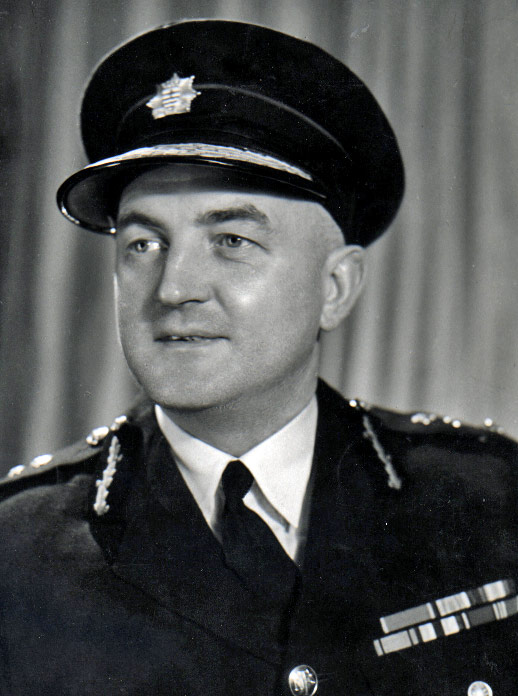
Joining the Fire Brigade
Upon leaving the Navy in 1922, he joined the Brighton Fire Brigade. Whilst in the brigade he passed with distinction a series of firefighting technical exams. He also received commendations for two particularly courageous rescues. At the age of 27 he was promoted to the rank of Second Officer. He was the youngest person to achieve this rank in Britain at the time.
In 1934 he became the Chief Fire Officer of the Croydon Fire Brigade. Whilst in post he had radio communications fitted between all appliances and headquarters, the first brigade in Britain to do so. His own experience of radio telephone communications convinced him that this would make his brigade more efficient.
Crystal Palace Fire
During this time he attended an incident that was one of the most serious fires ever seen in peacetime Britain. In 1936 the Crystal Palace exhibition pavilion caught fire, located in Crystal Palace Park.
The location and size of the structure made firefighting difficult. This was due to water shortages and the extreme heat that was generated. The heat was so great that the walls melted. The pavilion was located on top of a very hilly area in order to provide great scenic views.
Water resources needed to fight the fire were inadequate in the local area. Water had to be relay pumped uphill, a task which makes firefighting extremely difficult. Lessons learned at this fire, along with others, provided experience which he would use throughout his career.
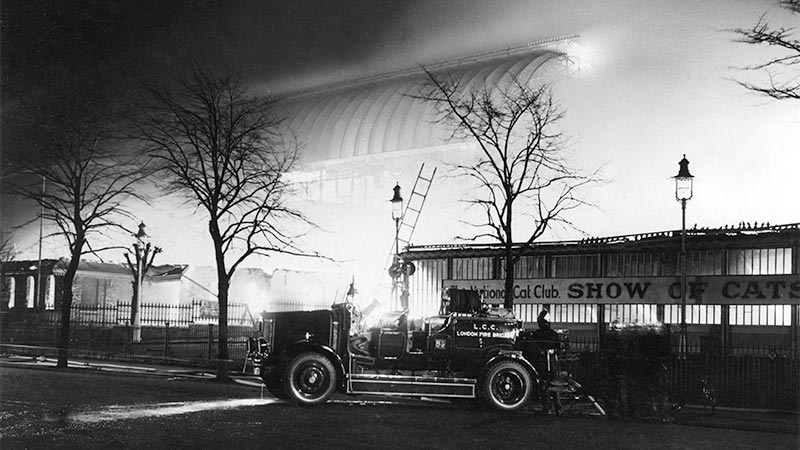
The Second World War
By the mid-1930s the prospect of war in Europe was growing . Delve joined a small group of senior fire officers, due to his progressive nature and practical experience. They pressed the government for a timetable to begin preparations for war. They wanted fire brigades to be properly equipped and to devise the tactics required in the event of a war.
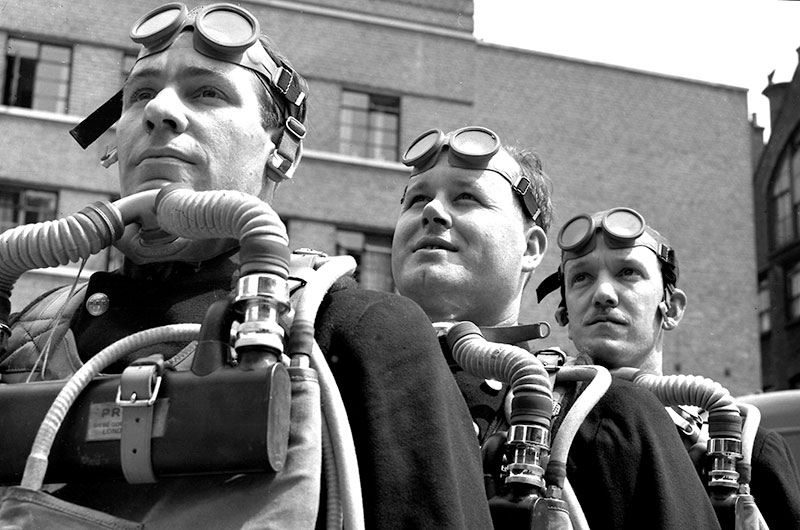
He was instrumental in forming the Auxiliary Fire Service (AFS). The AFS was a service which would be used to support the normal fire brigades in areas affected by bombing. The volunteers trained to use equipment and aid fire brigade operations when required. This was organised regionally, prior to the outbreak of war. Soon after bombing raids began it became clear that no single brigade would be able to deal with the number and scale of incidents alone.
National Fire Service
He supported the creation of a National Fire Service (NFS) which would enable one unified fire service to be established. It would be trained in common tactics, issued with the same equipment and available to attend incidents as one force. The NFS was divided into operational regions, each able to support the other when required. Sir Frederick was appointed as Area Commander of No 5 Region London. London suffered persistent bombing raids with both high explosive shells and incendiary devices. These caused fires across the City of London and the docks to become so great, their size had never been seen before.
In London, the River Thames provided a vital source of water. However, it was a tidal river so good communications to aid water relay pumping was identified by Delve as being critical. He made sure that all fireboats were equipped with radio sets.
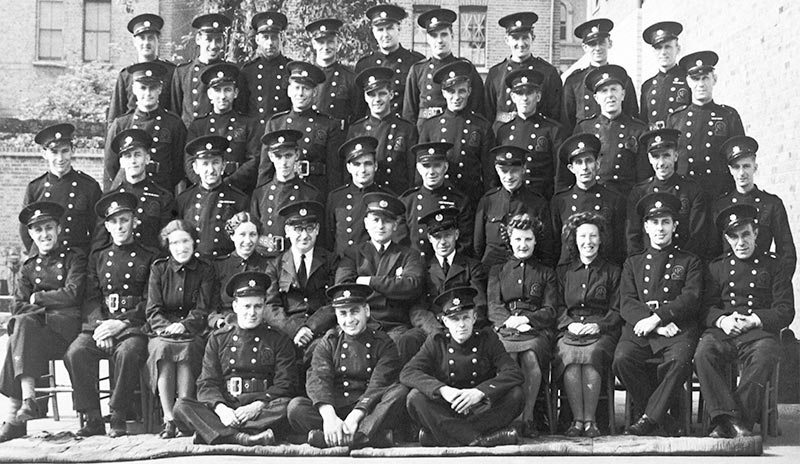
He also introduced a series of mobile fire teams. These could be sent to areas affected by air raids and flying bombs (V1) and rocket attacks (V2), which occurred in the last phases of the war.
The National Fire Service (NFS) was not intended to continue after the end of the war. However, the effect of standardised equipment and training left the fire service in a far stronger position than it had been prior to the war. A policy of mutual aid was developed. This is where brigades would be reinforced by neighbouring brigades, if required. This is still the way the fire service operates today.
Chief Officer London Fire Brigade 1948 to 1962
In 1948, Sir Frederick was appointed Chief Officer of London Fire Brigade. He set about persuading the London County Council (LCC) to equip the brigade with modern appliances, better communication equipment and introducing the ‘999’ emergency call system into London. He also pushed forward a building program for new fire stations. These improvements started his move to make the fire brigade fit for purpose in an ever-changing world.
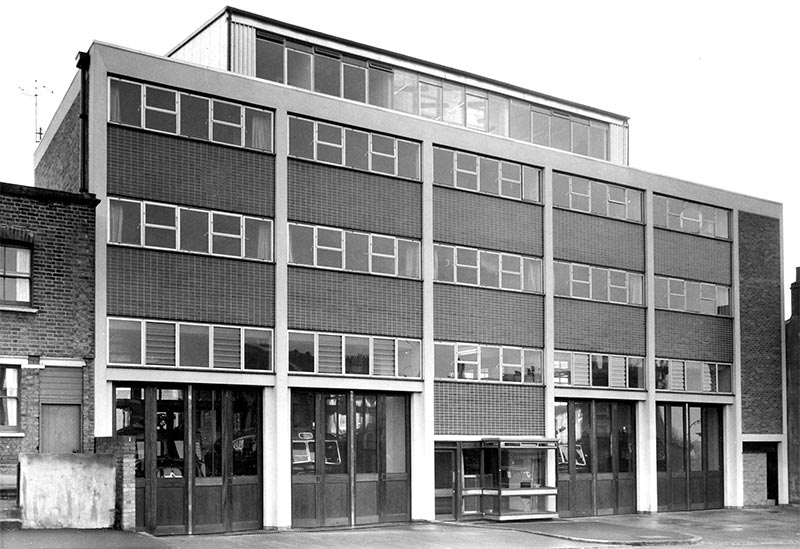
He was honoured with a Knighthood for public service in 1962, the only Chief Fire Officer ever to receive such an honour whilst in post, along with his CBE, awarded in 1942. Following retirement, he moved back to his home county of Sussex to enjoy his retirement with his wife. He passed away in 1995.
This article was researched and written by museum volunteer Kevin N.